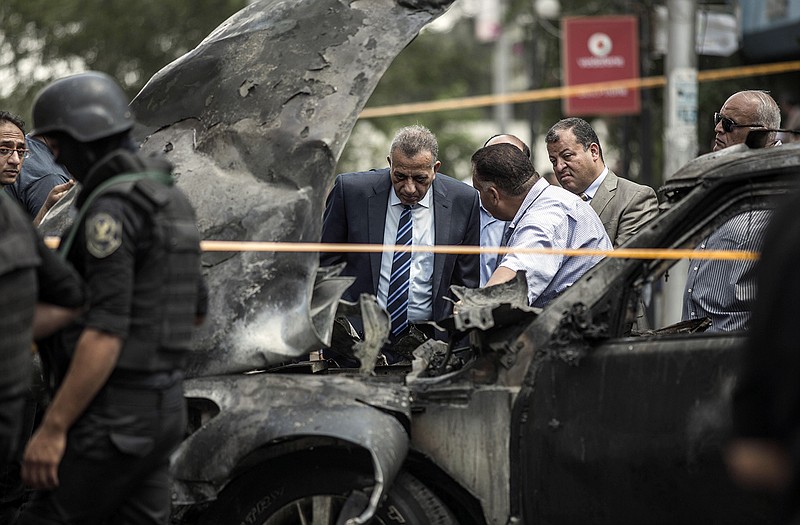CAIRO (AP) - A car bomb killed Egypt's chief prosecutor Monday in the country's first assassination of a senior official in 25 years, marking what could be an escalation in a campaign by Islamic militants toward targeting leaders of a crackdown on the Muslim Brotherhood.
Hisham Barakat led the prosecution of members of the Brotherhood and other Islamists, including former President Mohammed Morsi, who was overthrown by the military in July 2013. The courts have been handing out mass death sentences against them in trials harshly criticized as lacking due process.
Monday's assassination of the 65-year-old Barakat came on the eve of the second anniversary of the mass demonstrations against Morsi that led to his ouster.
A car laden with explosives was detonated by remote control around 10 a.m. as Barakat's motorcade left his home in the eastern district of Heliopolis, police said. He suffered multiple shrapnel wounds and was pronounced dead at 12:30 p.m. following surgery, medical officials said. Five guards, two drivers and one civilian also were injured in the blast.
An Egyptian militant group calling itself "Popular Resistance in Giza" claimed responsibility for the attack in an online statement, with photographs from the site of the bombing. The claim could not be independently verified. In a statement, the Muslim Brotherhood denied responsibility, but blamed authorities for the violence.
Authorities and pro-government TV networks blamed the Brotherhood, which they consider a terrorist group, broadly accusing it of orchestrating violence.
A senior security official said an initial investigation showed that Islamic militants along with the Brotherhood were responsible, while the State Information Service said the killing "clearly shows the terrorist group's violent discourse" and underscores its "rejection of the state of law." It equated the Brotherhood with extremist groups fighting in Iraq and Syria or killing tourists in Tunisia.
All the officials spoke on condition of anonymity because they were not authorized to talk to the media.
The Brotherhood has maintained that peaceful means are the only way to resist what it called a coup against Morsi, but recent shifts within the group's youth cadres have signaled frustration with that approach and new support for using force.
Islamic militants, who for years had turned Egypt's Sinai Peninsula into a stronghold, widened their insurgency after Morsi's overthrow.
Militants have focused on police and the military but in recent months have targeted the judiciary. On Sunday, the Islamic State released video showing the May assassination of three judges in the northern Sinai city of el-Arish, accusing them of ruling against "God's laws."

